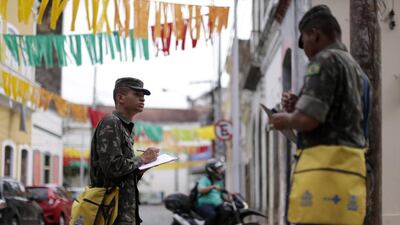The World Health Organisation has declared the Zika virus an international public health emergency. The virus has spread rapidly throughout South America by mosquitos and has been linked to a slew of birth defects. Brazil, the site of this summer’s Olympics, has been particularly hard hit, raising fears that a global pandemic could emanate from Brazilian shores later this year.
The frenzied reaction to the Zika virus reminds us that we live in an interconnected world where information travels fast. Panic has been advanced by media outlets eager for relevance and consumers. Had you relied solely on some news reports, you might think that humanity is at immediate risk. But that is not the case, far from it.
Throughout history, we have faced various plagues and pandemics. We have overcome them with science and prudence. Recent examples include Mers, Sars, bird flu and swine flu. In each case, we learnt something new about how viruses spread, and how best to contain them. The same will happen with the Zika virus.
More people travel across the planet than at any other point in human history, but this doesn’t fundamentally put us on a disaster course. Doctors and medical professionals also move quickly to far-flung areas suffering outbreaks of disease.
When the Ebola virus was flaring up in west Africa, medical professionals from around the planet were on the scene within days to contain the outbreak. Zika presents a different challenge because, like malaria, it is spread via a vector rather than human-to-human contact.
Dr Margaret Chan, the director general of the WHO, declared Zika to be an international health emergency because such a classification would help her organisation to coordinate efforts to contain the virus. What is needed now is prudence and vigilance. We should all use common sense and apply the knowledge we have gained about diagnosis, containment and treatment. But there is no need to panic. We have faced medical challenges before and overcome them.

